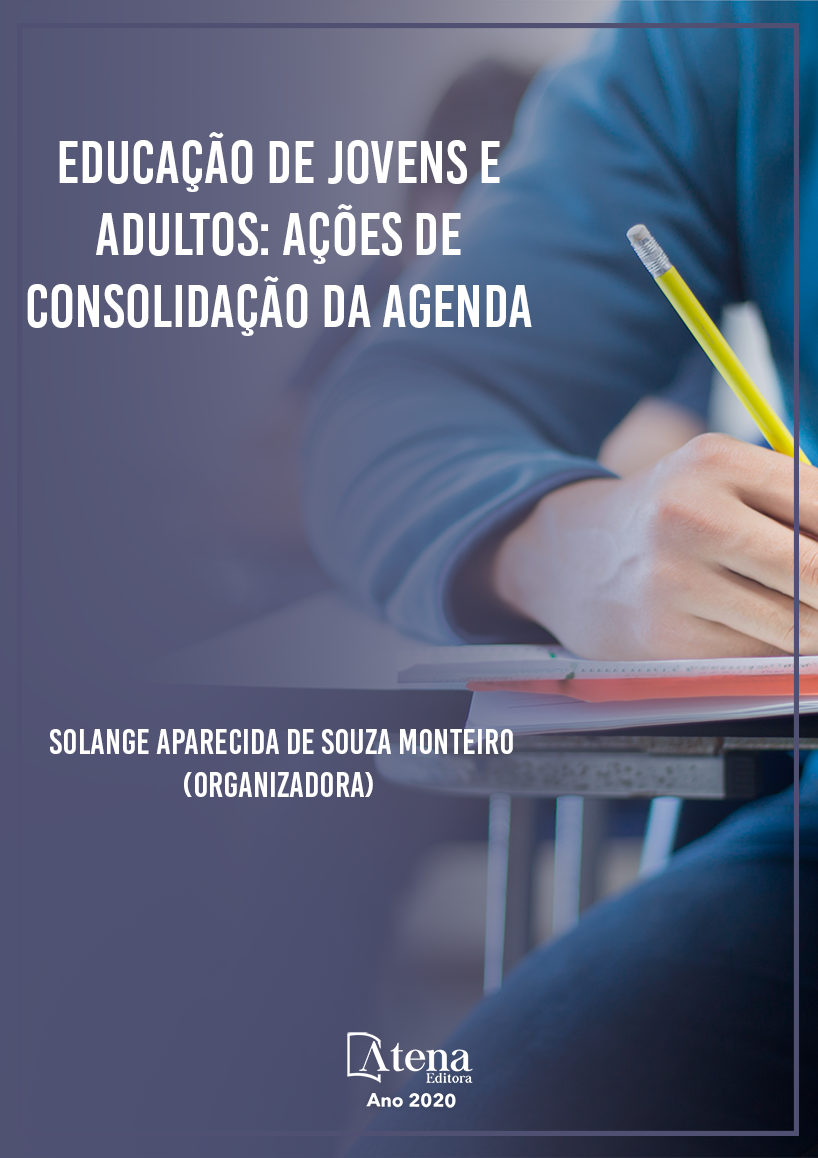
EXPERIÊNCIA, FORMAÇÃO DOCENTE INCLUSIVA E COTIDIANOS DIDÁTICOS NA EDUCAÇÃO DE JOVENS E ADULTOS
O presente estudo surge a partir das leituras e das experiências de formação docente continuada inclusiva no campo da Educação de Jovens e Adultos (EJA) vivenciadas com professores que lecionam na modalidade, no Colégio Paulo Freire, em um município no estado da Bahia. Nesse artigo propomos como objetivo geral: analisar como as experiências contribuem na formação docente continuada inclusiva; e, dentre objetivos específicos: identificar as percepções dos docentes sobre as experiências, desdobradas nos cotidianos didáticos inclusivos e refletir epistemologicamente sobre saberes da experiência, educação inclusiva, cotidianos didáticos e formação docente. O problema investigado teve a seguinte questão: Como pensar a formação docente continuada inclusiva a partir da escuta dos Saberes da experiência? Essa investigação utilizou a abordagem qualitativa, tendo como instrumento de apropriação de informações um questionário online, que contemplava questões de formação docente inclusiva e subjetividade. Sustentamos o estudo com o aporte teórico de Dantas (2008), Sassaky (2006), Mitter (2003), Santana (2003), dentre outros. Como resultado, compreendemos que a pesquisa abre novos olhares sobre a formação docente continuada inclusiva, ressignificando outros sentidos de aprendizagens e saberes, a partir da prática docente, apropriando-se da experiência através de princípios dialógicos, reflexividade crítica e encontro com o outro. Salientamos que a formação docente continuada inclusiva é uma das possibilidades para promover o reconhecimento e a validação das experiências de si, pois pode contribuir para que os sujeitos professores da EJA possam acessar outras interfaces de reflexividade crítica inclusiva de repensar a sua prática docente.
EXPERIÊNCIA, FORMAÇÃO DOCENTE INCLUSIVA E COTIDIANOS DIDÁTICOS NA EDUCAÇÃO DE JOVENS E ADULTOS
-
DOI: 10.22533/at.ed.8172014078
-
Palavras-chave: Formação docente continuada inclusiva. Saberes da experiência. Cotidianos didáticos na EJA.
-
Keywords: Continuous inclusive teacher training. You know the experience. Inclusion. Didactic daily in the EJA.
-
Abstract:
The present study arises from the readings and experiences of continuing inclusive teacher training in the field of Youth and Adult Education (EJA) experienced with teachers who teach in the modality, in the Paulo Freire College, in a municipality in the state of Bahia. In this article we propose as a general objective: to analyze how the experiences contribute in the continuous inclusive teacher formation; and, as specific objectives: to identify teachers' perceptions about their experiences, reflected in inclusive didactic everyday, to perceive what they bring to inclusive formation as experiences built in the classroom from the constructions in their contexts, and to reflect epistemologically on the experience, inclusive education, daily teaching and teacher training. During our formations we pondered, like our experiences, in the classroom, they helped us in the formation and reflection of the improvement of our inclusive practice as trainers; In this way, the problem investigated had the following question: How to think inclusive inclusive teacher training, from listening to the knowledge of experience? This research used the qualitative approach, having as an instrument of information appropriation an online questionnaire, which included issues of inclusive teacher training and subjectivity. As a result, we understand that research opens new perspectives on inclusive continuing teacher education, re-signifying other senses of learning and knowledge, from the teaching practice, appropriating the experience through dialogic principles, critical reflexivity and encounter with the other. We emphasize that continuous inclusive teacher education is one of the possibilities to promote the recognition and validation of the experiences of self, since it can contribute to the fact that the teachers of the EJA can access other interfaces of critical reflexivity inclusive of rethinking their teaching practice.
-
Número de páginas: 14
- Débora Regina Oliveira Santos


